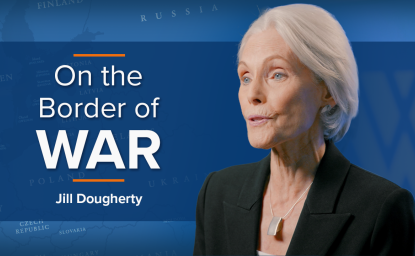No Dissent Allowed: Pressing for Democratic Freedoms in Iran
Spotlight on Mehrangiz Kar, an Iranian attorney, writer, and activist who currently is a public policy scholar at the Wilson Center through December 2002.
Spotlight on Mehrangiz Kar, an Iranian attorney, writer, and activist who currently is a public policy scholar at the Wilson Center through December 2002.
The Iranian government not only discourages dissent, but those who espouse civil liberties face political persecution. Such is the case for Mehrangiz Kar, an Iranian attorney, writer, and activist who has devoted her life to promoting democracy, rule of law, and human rights in Iran.
Iranian authorities have prohibited Kar from making public appearances in her native country, including conferences, radio, and television, which has prompted her to use international forums as a platform for her cause. In April 2000, Iranian authorities arrested and imprisoned Kar and numerous other activists upon their return from a symposium in Berlin. The symposium explored prospects for reform in Iran following the parliamentary elections; authorities, however, charged these activists with threatening Iran's national security.
Three of five charges against Kar are pending for which she may be arrested should she return to Iran.
Currently, Kar is in the United States, spending several months conducting research as a public policy scholar at the Wilson Center. She is examining the potential for democratic freedoms and human rights in the context of Islamic law.
For example, the 1985 press law, still in effect, and Iran's Constitution stipulate press freedom except when authorities deem it in conflict "with the principles of Islam." The language is vague and the legal definitions so broad, yet the wording provides enough ammunition to powerful officials to censor and prosecute. "[Officials] are interpreting the law so that it is useful only to their needs," said Kar, not for the good of the people.
"How can we have the government respect human rights and free expression when the judiciary is a symbol of extremism?" Kar said. "They're active against writers, lawyers, parliamentarians—any freedoms." During the past five years, reformist President Mohammad Khatami and a reform-minded parliament have been virtually powerless against the conservative religion-based institutions comprising clerics and the judiciary.
The conservative clerics, who wield significant influence in the government, contend that Islam is incompatible with democracy. Meanwhile, the courts—also controlled by conservative forces—have shut down dozens of independent journals and have created political deadlock by vetoing all reform efforts.
"Even with a new interpretation of Islam, Iran cannot move away from extremism and become moderate," Kar said. "A religious government cannot move toward democracy."
Until recently, Kar was an active public defender in Iran's civil and criminal courts. Throughout her career, she witnessed the government's disregard for rights and freedoms, which compelled her activism. Kar has authored 13 books and dozens of journal articles, particularly focusing on women's rights and gender discrimination, and has received numerous international human rights awards for her efforts.
Kar advocates moving toward secularism and implementing constitutional and legal reform as important steps toward guaranteeing democratic freedoms. "The Islamic Republic of Iran has, for 23 years, neglected human rights but it must change this policy."


